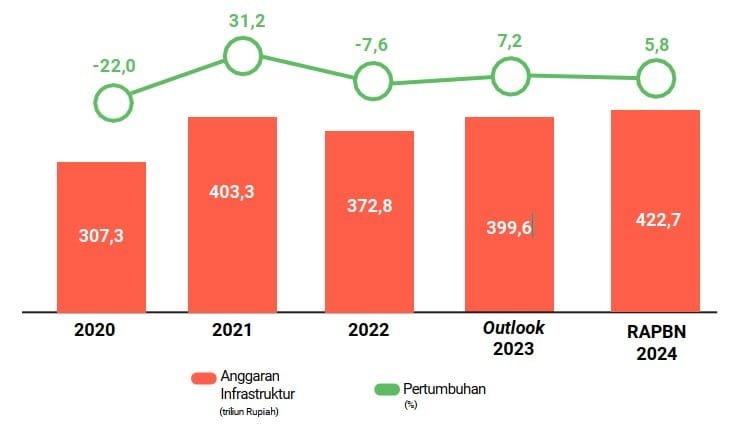Indonesia is making significant strides toward sustainable infrastructure to bridge its massive $143 billion infrastructure gap. With a projected $50 billion spent annually from 2020 to 2024—about 20% of the national budget—the government demonstrates a strong commitment to Sustainable Infrastructure Projects Indonesia. This investment is essential to meet national economic growth goals while also preserving the environment. Key areas of focus include renewable energy, waste management, nature-based solutions, and the development of resilient public utilities.
Sustainable Infrastructure Projects Indonesia: Addressing Waste Management Challenges
A primary concern for Indonesia is waste management. With 105,000 tonnes of waste generated daily across the country—a figure expected to increase to 150,000 tonnes by 2025—the urgency of sustainable waste solutions is clear. Sustainable Infrastructure Projects Indonesia have incorporated waste management as a critical component, aiming to turn the challenge into an opportunity for resource recovery and recycling. By focusing on sustainable waste systems, Indonesia can significantly reduce pollution and promote cleaner cities for its citizens.
Read More: The Push of Indonesia Green Building Trends: A New Era
Green Financing and Economic Growth
A significant driver of Indonesia’s infrastructure progress is its commitment to green financing. The Asian Development Bank estimates that Indonesia’s climate-adjusted infrastructure financing needs were approximately $74 billion annually from 2016 to 2020. This figure underscores the critical need for financial support to create Sustainable Infrastructure Projects Indonesia that can withstand environmental challenges. Indonesia’s infrastructure spending nearly doubled from IDR 256.1 trillion (USD 17.9 billion) in 2015 to IDR 408.2 trillion (USD 28.6 billion) in 2021. This substantial growth shows that Indonesia is not just planning but actively investing in resilient infrastructure.
Read More: What to Know About Indonesia Construction Financing
Advancing Sustainable Infrastructure Projects Indonesia in Renewable Energy

To address climate change, the country has set ambitious Sustainable Infrastructure Projects Indonesia and renewable energy targets. By 2030, the country aims to cut greenhouse gas emissions by 29% through domestic initiatives and by 41% with international support. This goal drives investment in renewable energy sources like solar, wind, and geothermal power. Renewable energy not only reduces emissions but also helps power Indonesia’s rapidly growing urban areas, which require substantial electricity and clean energy sources.
Nature-Based Solutions for Environmental Stability
Indonesia has committed to nature-based solutions such as restoring peatlands and mangrove ecosystems. These Sustainable Infrastructure Projects Indonesia are invaluable for carbon storage and climate adaptation, protecting coastal areas from erosion and supporting biodiversity. Restoring these ecosystems is a critical part of Indonesia’s infrastructure plan, as it creates sustainable benefits for communities while combating the adverse effects of climate change.
Enhancing Public Utilities and Economic Impact
To improve the quality of life for its citizens and drive sustainable economic growth, Indonesia has invested heavily in public utility Sustainable Infrastructure Projects Indonesia. This includes the construction of 36 dams and new rail networks, which help manage water resources, provide efficient transport, and reduce urban congestion. Such public utilities are essential for sustainable urban development and reducing the environmental footprint of expanding cities.
Read More: Infrastructure Development Plans Indonesia: The New Era
These National Strategic Projects (PSN) are anticipated to bring multiplier effects, boosting economic activity, creating jobs, and enhancing living standards. By integrating sustainability into infrastructure, these Sustainable Infrastructure Projects Indonesia offer long-term benefits. They aim to leave a positive legacy for future generations.
Indonesia’s journey toward sustainable infrastructure development is marked by substantial investments, ambitious environmental targets, and a focus on green financing. Addressing waste management challenges, expanding renewable energy, and implementing nature-based solutions are crucial to Indonesia’s success. Through these Sustainable Infrastructure Projects Indonesia, the nation demonstrates a commitment to building resilient, eco-friendly cities and communities. As a result, Indonesia is setting an example for sustainable development across Southeast Asia.

